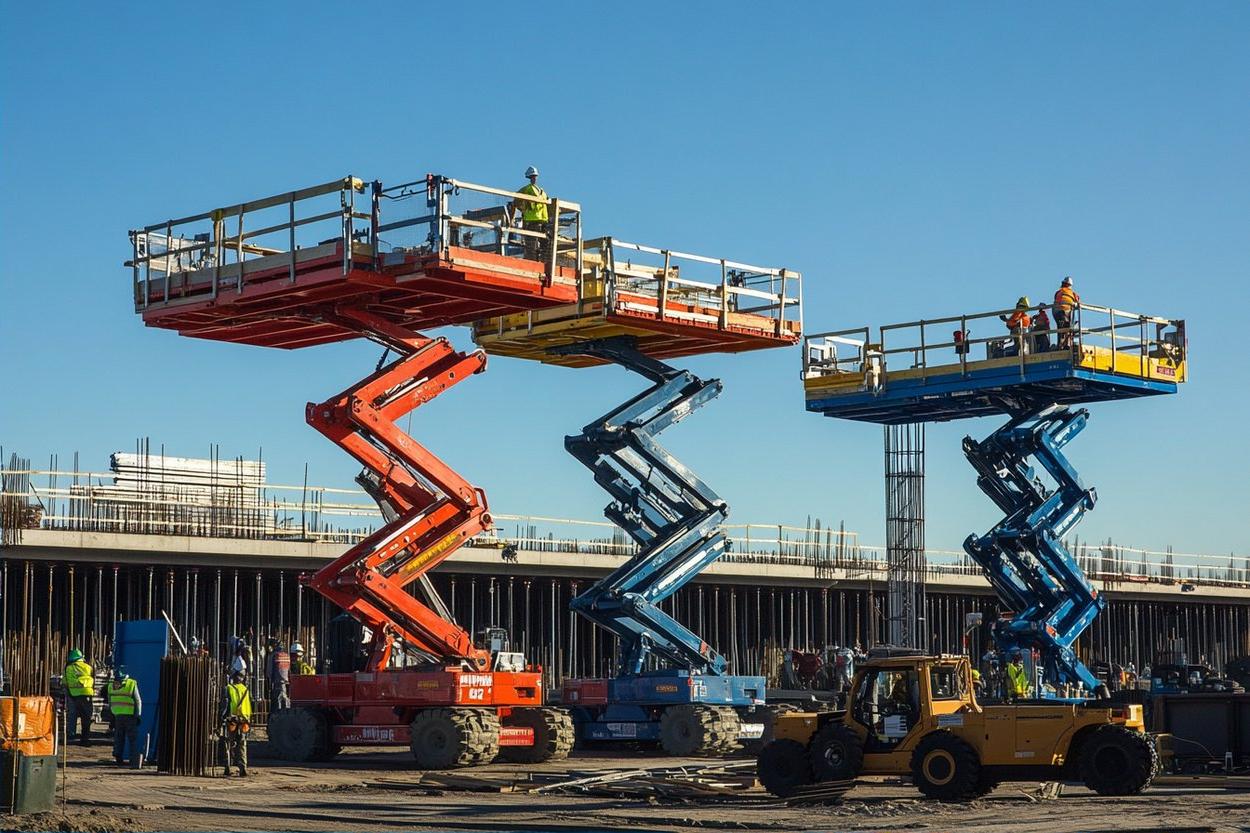Crane Jobs: Opportunities and Challenges in the Construction Industry
Crane operators play a crucial role in the construction industry, responsible for operating heavy machinery to move materials and equipment on job sites. This specialized career path offers unique opportunities and challenges for those interested in the field. Let's explore the world of crane jobs, from the required training to career prospects and industry demands.

Aspiring crane operators must complete a comprehensive training program that covers both theoretical knowledge and hands-on experience. These programs often include instruction on crane operation techniques, safety protocols, load calculations, and equipment maintenance. Many vocational schools, community colleges, and specialized training centers offer crane operator courses.
In addition to training, crane operators must obtain certification from recognized organizations such as the National Commission for the Certification of Crane Operators (NCCCO) or the Operating Engineers Certification Program (OECP). These certifications demonstrate that an operator has met industry standards for knowledge and skills in crane operation.
How does one gain experience in the construction industry?
Gaining experience in the construction industry is essential for aspiring crane operators. Many start their careers as apprentices or helpers, working alongside experienced operators to learn the ropes. This hands-on experience is invaluable, as it allows individuals to familiarize themselves with various types of cranes and job site conditions.
Apprenticeship programs are often offered through unions, trade associations, or large construction companies. These programs typically combine on-the-job training with classroom instruction, providing a comprehensive learning experience. Apprenticeships can last anywhere from three to five years, depending on the program and specialization.
Another way to gain experience is through entry-level positions in construction, such as general laborers or equipment operators. These roles can provide exposure to crane operations and help individuals build a network within the industry, potentially leading to opportunities for advancement into crane operation positions.
What are the career prospects for crane operators?
The career prospects for crane operators are generally positive, with steady demand in the construction industry. As infrastructure projects continue to grow and urban development expands, the need for skilled crane operators remains strong. According to the U.S. Bureau of Labor Statistics, employment of construction equipment operators, including crane operators, is projected to grow 5% from 2020 to 2030, which is about as fast as the average for all occupations.
Crane operators can find employment opportunities in various sectors, including:
-
Commercial and residential construction
-
Industrial and manufacturing facilities
-
Shipping ports and terminals
-
Mining and excavation sites
-
Bridge and road construction projects
With experience and additional certifications, crane operators can advance to supervisory roles, such as site foremen or project managers. Some may choose to specialize in operating specific types of cranes or working in niche industries, which can lead to higher pay and more specialized job opportunities.
What are the safety considerations in crane operation?
Safety is paramount in crane operation, as the job involves working with heavy machinery and potentially hazardous materials. Crane operators must adhere to strict safety protocols and regulations to protect themselves, their coworkers, and the public.
Some key safety considerations in crane operation include:
-
Proper equipment inspection and maintenance
-
Understanding and following load capacity limits
-
Awareness of environmental factors such as wind speed and ground stability
-
Clear communication with ground crews and other site personnel
-
Adherence to OSHA (Occupational Safety and Health Administration) standards and guidelines
Crane operators must also stay updated on the latest safety practices and technology advancements in the field. Regular safety training and recertification are often required to maintain employment and ensure compliance with industry standards.
What is the typical salary range for crane operators?
The salary range for crane operators can vary depending on factors such as experience, location, industry, and type of crane operated. According to recent data, the average annual salary for crane operators in the United States ranges from $45,000 to $95,000.
| Experience Level | Typical Salary Range |
|---|---|
| Entry-level | $45,000 - $60,000 |
| Mid-career | $60,000 - $80,000 |
| Experienced | $80,000 - $95,000+ |
Prices, rates, or cost estimates mentioned in this article are based on the latest available information but may change over time. Independent research is advised before making financial decisions.
It’s important to note that crane operators working in specialized industries or on high-risk projects may command higher salaries. Additionally, overtime pay and bonuses can significantly increase overall compensation.
How is technology impacting the crane operation field?
Technology is rapidly changing the landscape of crane operation, introducing new tools and systems that enhance safety, efficiency, and precision. Some notable technological advancements in the field include:
-
Computer-aided operating systems that provide real-time data on load weights and crane stability
-
Virtual reality simulators for training and skill development
-
Remote-controlled cranes that allow operators to work from a safe distance
-
GPS and laser-guided systems for improved accuracy in positioning and load placement
-
Advanced sensors and cameras for enhanced visibility and obstacle detection
As technology continues to evolve, crane operators must adapt and develop new skills to work with these advanced systems. This ongoing technological integration may lead to changes in training requirements and job responsibilities for crane operators in the future.
In conclusion, crane jobs offer a unique and challenging career path in the construction industry. With proper training, certifications, and a commitment to safety, individuals can find rewarding opportunities in this field. As the construction sector continues to grow and evolve, the demand for skilled crane operators is likely to remain strong, making it an attractive career choice for those interested in heavy machinery and construction work.






